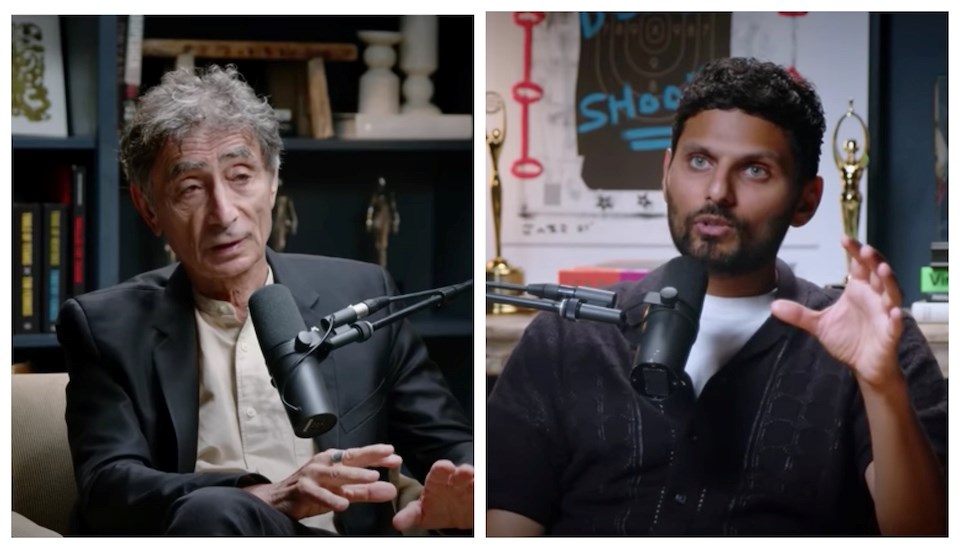A Vancouver-based bestselling author recently discussed several of the city's issues on one of the world's most popular podcasts.
Hungarian-born Dr. Gabor Mate is a world-renowned addictions expert who has deeply explored the link between trauma and substance abuse. He emigrated with his family to Canada when he was 12 after WWII. During the war, his grandparents, who were Jewish, were killed by the Nazis.
Jay Shetty was born in the United Kingdom and is a popular author and former Hindu monk. He also hosts , one of the most successful health and mental wellness podcasts, which features some of the biggest celebrities and is listened to by millions of people worldwide.
Mate recently appeared on Shetty's podcast to discuss everything from identity to trauma to personal growth and more.
At one point during the interview, Shetty asked him to define a "healthy self-identification."
In response, Mate said that there "isn't one" because you limit your identity to a narrow definition when you try to conform to meet the parameters of a label.
"If I identify with myself as a doctor, I immediately limit myself," observes Mate, adding that Shetty would be doing the same if he identified as a monk (or former monk).
"If I identify myself with a state or a nation I could be loyal to that state or nation or love that state or nation or group...but if you identify yourself with it...you limit yourself already."
Shetty notes, however, that humans are also social and have an intrinsic need to belong and connect with others. While Mate agrees that a sense of belonging is vital, he cautions against losing one's individual authenticity.
Gabor Mate discusses Â鶹´«Ã½Ó³»Canucks on Jay Shetty podcast
The physician goes on to speak about how people over-identify with sports teams to an almost absurd point of suffering.
"In Vancouver, British Columbia, where I live it's a very peaceful place. But the Â鶹´«Ã½Ó³»Canucks...when they made it to the Stanley Cup finals and lost...there were riots in the street," he said.
"Why? Because people over-identified."
Instead of conflating one's identity with an external thing, such as a sports team, people should be fans who understand they are watching a game and not their life play out on the ice.
Mate also notes that he felt a "loss of identity" when he left his role as a family doctor to study people suffering from substance use disorders on the Downtown Eastside. After caring deeply for his patients for many years, it was a difficult change.
Today, however, the Vancouver-based writer says his time on the DTES helped him "further discover" his purpose and "learn so much about myself and human beings."


